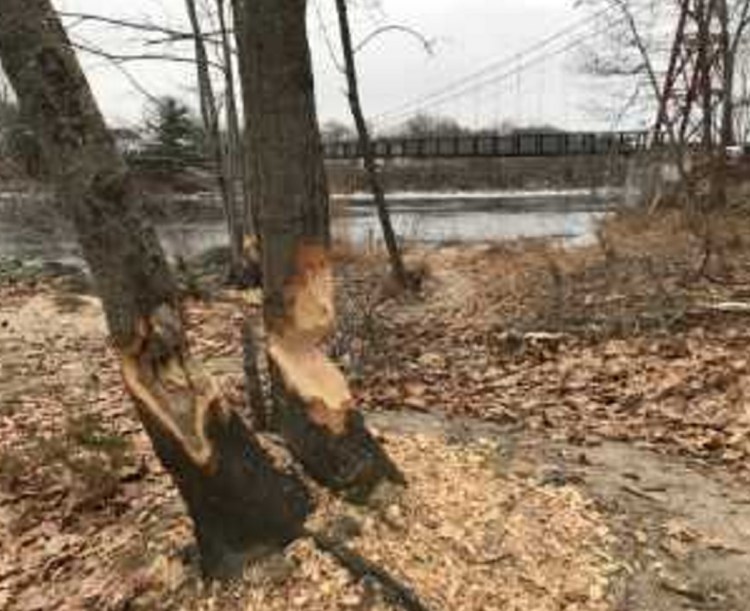TOPSHAM — Topsham officials say the trapping and killing of six beavers around the swinging bridge park was necessary for public safety.
The town heard concerns in mid-December from a resident and a member of the town’s Riverwalk Committee that beavers were chewing through trees, knocking some over and leaving others precariously unstable. Those unstable trees created hazards on walking trails and roads in the area, according to Town Manager Rich Roedner.
Roedner said the first option was to remove and relocate the beavers. However, when the town began to research moving the beavers, it was clear that wouldn’t be possible.
“We were informed this is not the time of year you can relocate beavers,” Roedner said. “They wouldn’t have shelter or a food supply. They would starve.”
Roedner said the town contacted a local, state-licensed trapper, who confirmed the animals couldn’t be relocated.
“We did not make the decision lightly,” Roedner said. “But we felt that it was the responsible decision to make at this time to protect public safety.”
The beavers were trapped and killed in early January. Roedner acknowledged he had received some emails from residents since the removal, but the process is common at this time of year.
“They’re very territorial,” said Butch Davis of Midcoast Wildlife Specialists. “A beaver can’t find a new home on its own or with other beavers.”
Davis said most people that contact his business would prefer to see the animal relocated, but 90 percent of beavers don’t survive a winter move. The best chance for survival is in the spring before the animals give birth, according to Davis.But it’s still risky because the animals are territorial and create their own habitats.
“They eventually will create wetlands when they settle in,” Davis said. “Inland Fisheries and Wildlife doesn’t like us to touch anything then.”
Roedner said the town will keep a closer eye in the area so that if new beavers move in “we have an opportunity to be more proactive in managing the population.”
The town could use repellents, tree guards, and den disruption to encourage natural relocation.
chris@timesrecord.com
Send questions/comments to the editors.



Comments are no longer available on this story